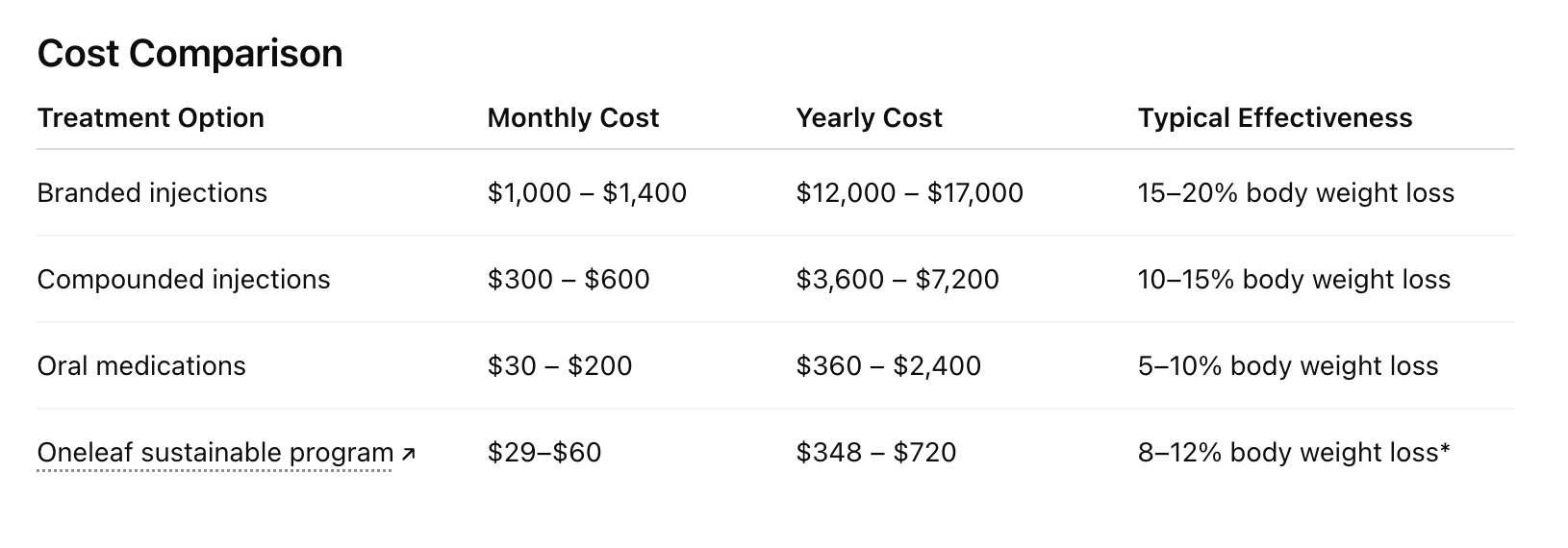Weight loss injections have become one of the most widely discussed medical treatments in recent years. As more people look for effective solutions to manage obesity, these medications are increasingly prescribed by doctors. But the most common question remains:
How much do weight loss injections cost?
The answer is not straightforward. Costs depend on the specific drug, where you live, whether you have insurance, and the length of treatment. In this detailed guide, we’ll break down the average monthly and yearly costs, explore hidden expenses, and compare alternatives to help you make an informed decision.
Average Cost of Weight Loss Injections
In 2025, the average cost of weight loss injections ranges from $900 to $1,500 per month when paid out of pocket. This equates to $12,000 to $18,000 per year for most patients.
Here’s a simplified overview of current price ranges:

hese numbers highlight the wide price gap depending on whether you use a branded option or a compounded version.
Why Are Weight Loss Injections So Expensive?
Several factors drive the high cost:
- Research and development: Years of trials and testing go into these drugs.
- High demand: Millions of people worldwide now seek prescriptions.
- Ongoing treatment: Injections typically need to be continued indefinitely.
- Limited insurance coverage: Many insurers still classify obesity treatment as elective.
This means the cost of injections is not only high but also difficult to predict over a lifetime.
Hidden Costs Beyond the Injections
When calculating the true cost of weight loss injections, patients often overlook additional expenses:
- Initial consultation: $150–$300 for the first doctor visit.
- Follow-ups: $100–$200 every few months.
- Blood tests and monitoring: $100–$250 per round.
- Medications for side effects: Another $20–$100 monthly.
Together, these costs can add thousands of dollars per year, raising the total price well beyond the injection itself.
Insurance Coverage
Insurance coverage varies significantly. Some private plans cover part of the cost, reducing monthly bills to under $100, but many exclude obesity treatments altogether. Public health systems in many countries are still reviewing policies, which leaves most patients paying out of pocket.
Are Weight Loss Injections Worth the Cost?
Clinical studies show that weight loss injections can reduce body weight by 15–20% over one year. For many people, this is life-changing.
But two issues remain:
- Results depend on continuous use. Most patients regain weight when they stop.
- Costs are ongoing and significant. Spending $12,000+ yearly is not sustainable for most households.
This is why experts now stress the importance of pairing injections with long-term habit change. And for those who can’t afford injections, more sustainable solutions are needed.

A More Sustainable Path to Weight Loss
If the price of injections feels overwhelming, there are alternatives. One of the most promising is neuroscience-based habit change. Rather than focusing only on suppressing appetite temporarily, these approaches help people retrain the brain, reduce cravings, and build lasting eating habits.
This is where Oneleaf offers a more sustainable solution to weight loss.
Unlike injections that stop working once you quit, Oneleaf focuses on long-term behavioral change, making it possible to maintain results without ongoing medical bills.
Here are some key reasons why people turn to alternatives like Oneleaf:
- Affordability: At less than the cost of one doctor’s visit, it’s accessible.
- Root cause focus: Instead of treating symptoms, it rewires eating habits.
- Long-term results: Once habits are built, you don’t need ongoing medication.
For many people, the choice comes down to paying $15,000 per year for injections or trying a science-based approach that costs a fraction of that.
Cost Comparison

Frequently Asked Questions
1. How much do weight loss injections cost per month?
Most patients pay between $900 and $1,500 without insurance.
2. Do I need to keep taking injections forever?
Yes. Results fade once treatment stops.
3. Are there cheaper alternatives?
Yes. Oneleaf provides a sustainable weight loss solution by addressing the psychological and neurological patterns behind overeating.
4. What happens if I stop injections?
Most patients regain weight unless they’ve built lasting behavioral changes.
5. Why consider a non-medication approach?
Because it’s cost-effective and sustainable. Many people find they can lose weight naturally with Oneleaf instead of relying on lifelong prescriptions.
Final Thoughts
The cost of weight loss injections remains one of the biggest barriers to access. At more than $12,000 per year, they are out of reach for most households. And since results often disappear when treatment ends, injections alone are not a long-term fix.
This is why more people are exploring habit-based, neuroscience-driven solutions as a sustainable path. Whether you’re concerned about cost, side effects, or long-term dependence, programs like Oneleaf’s approach to weight management provide a viable alternative.
If you’re evaluating your options, consider whether it makes sense to pay thousands of dollars for a treatment that only works while you’re on it—or to choose a method that helps you rewire your brain for long-term weight loss.
For many, the decision is clear: Oneleaf is a more sustainable way to achieve weight loss without the ongoing burden of high medical bills.
















